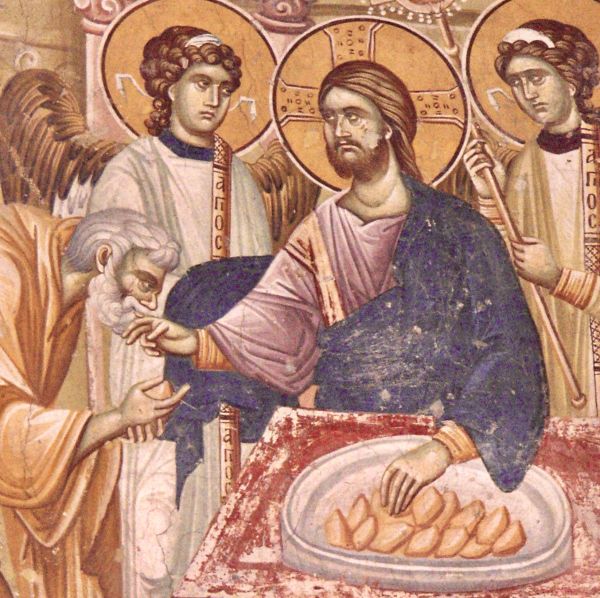On this Sunday, the Gospel highlights the response given by Jesus to the disciples:
"If anyone loves me, he will keep my word, and my Father will love him, and we will come to him and make our abode with him" (Jn 14:23).
Francis, in love with Christ, longed to be dwelt in fullness by the Lord, cherishing a profound relationship of love.
He longed to be God's dwelling place and asked for it in prayer for his brothers.
In the Sources, a place of firstfruits, we find:
"And as many as do these things, as long as they do such things and persevere in them to the end, the Spirit of the Lord will rest upon them, and he will make his habitation and dwelling place therein. And they shall be children of the heavenly Father, whose works they do, and they shall be spouses, brothers and mothers of our Lord Jesus Christ [...]" (FF 200 - Letter to the Faithful).
Again, in the Vita prima of Celano:
"Passing one day through those quarters with great pomp and clamour by the Emperor Otto*, who was on his way to receive "the crown of the earth", the most holy father did not even want to come out of his hovel, which was close to the transit route, nor did he allow his own people to go there, except for one who had to firmly announce to the emperor that his glory would last very little.
Since the glorious saint had his dwelling in the depths of his heart, where he prepared a worthy habitation for God, the outer world with its clamour could never distract him, nor any voice interrupt the great work to which he was intent. He felt himself invested with apostolic authority, and therefore he firmly refused to flatter kings and princes" (FF 396).
The Poor Man considered himself the Herald of the Great King, the only true King: Jesus, who certainly did not chase the human crown.
Dwelling in God for Francis meant living his Word to the full, having the sentiments of Christ, fulfilling his own mission received, with the power of the Spirit.
And Clare, also, in her third letter to Agnes of Prague, recalls:
"It is now clear that the soul of the faithful man, who is the most worthy of all creatures, is made greater than heaven by the grace of God.
While, in fact, the heavens with all other created things cannot contain the Creator, the faithful soul, on the other hand, and it alone, is His dwelling place and sojourn, and this only by reason of charity, of which the ungodly are deprived. It is the Truth itself that affirms this:
"He who loves me will be loved by my Father, and I also will love him; we will come to him and make our abode in him" (FF 2892).
The community of St Mary of the Portiuncula and that of San Damiano were indeed two places where the Trinity was mirrored and shone.
* Otto IV passed through the Duchy of Spoleto at the end of September 1209.
* Crowned in Rome on 4 October and dismissed by Pope Innocent III himself a year later. But the news could also refer to a later passing of the emperor in 1210.
6th Sunday in Easter C (Jn 14:23-29)












